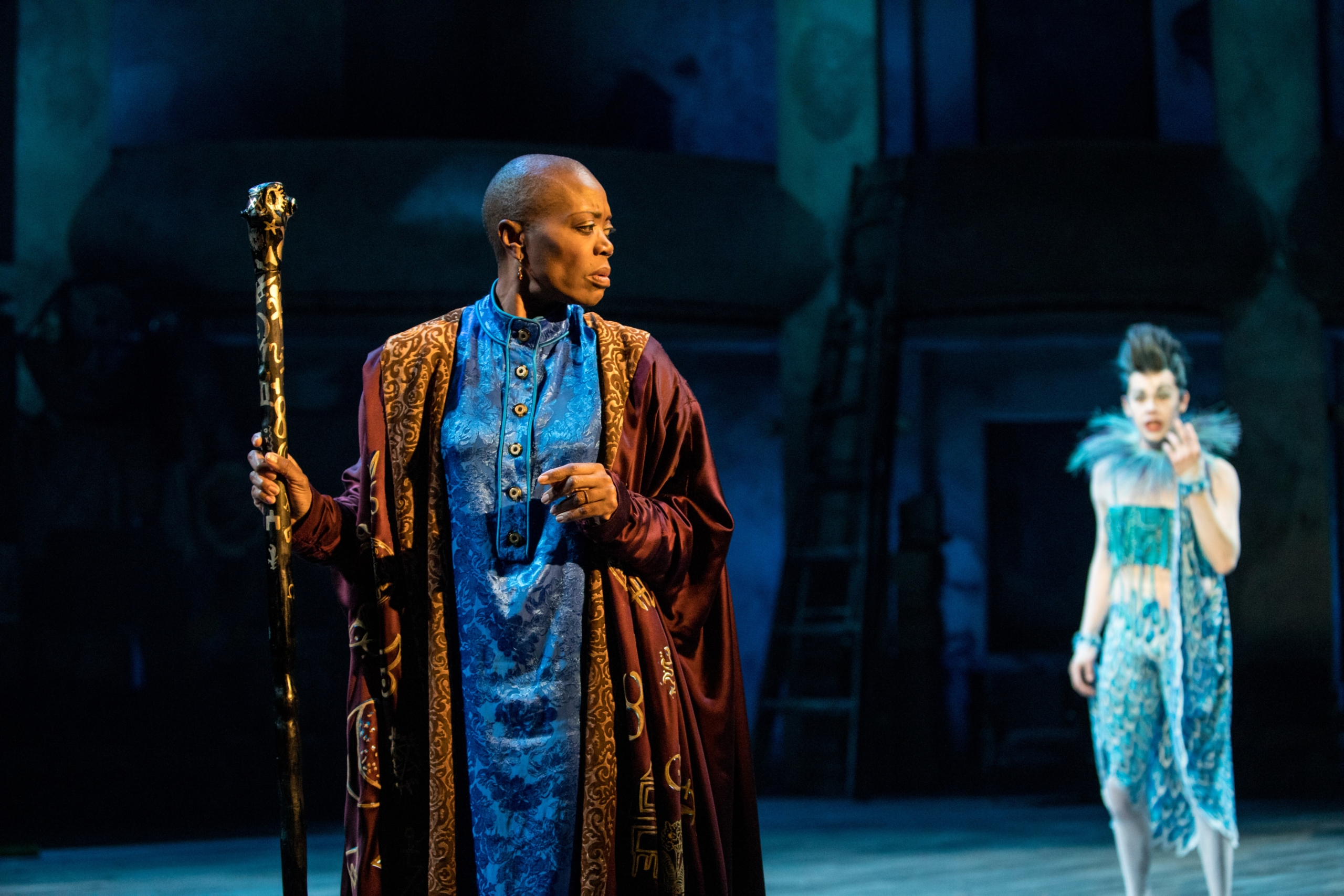REVIEW: The Tempest
Is there a more human feeling than the desire for revenge; to see one’s enemies brought low and made to suffer for their crimes against us? Such sentiments have driven entire media franchises, but what of its polar opposite? Forgiveness and reconciliation are indeed the rarer action, and what better time to be reminded of these virtues than today?
It is no mistake that The Guthrie’s latest production of Shakespeare’s The Tempest feels both timeless and as modern as though it were written yesterday. Countless generations have experienced The Tempest as a celebration of reason over fury, while also grappling with the many questions it raises about the role of artistry, power, and romance.
The Tempest tells the tale of Prospero (here, Prospera, with the lead role recast as a woman), the Duke of Milan who was so obsessed with learning that she was overthrown by her brother and cast adrift into the sea. Prospera and her daughter, Miranda, land on a mysterious island where her learning manifests as a magical power over the land and the people on it. From there, after years pass, she gets the chance to avenge herself against those who conspired against her. Wiith the help of a magical spirit she freed upon her arrival, she creates the illusion of a shipwreck and proceeds to impose hardships in order to bring about their contrition.
What makes it feel so modern is the way The Tempest introduces ideas about patriarchy, colonialism, racism, even sexism, and challenges audiences by manifesting these concepts in the purported protagonist. Prospera is both a victim and a tyrant, having overthrown and subjugated the island’s natives, the witch Sycorax and her son, Caliban. This, too, is no accident.
The so-called “Age of Discovery” in Europe had been going strong for nearly 150 years by the time Shakespeare was born in 1564. Explorers like Ferdinand Magellan, Vasco da Gama, Francis Drake, and the dozens of others who fanned out across the oceans seeking trade routes and new territories for their patrons were probably household names the way Yuri Gagarin, Alan Shepard, and Neil Armstrong are for kids growing up in the Space Age. Since new “discoveries” were still happening almost every year, by the time Shakespeare began work on the play–between 1610 and 1611–this constant expansion of the “known world” must have been a great source of optimism, but also anxiety, for the people going about their lives in pre-industrial London.
We all know what happened to the peoples encountered by the European explorers on those distant shores in their frenzy to carve up the New World. It may strike us that questions about the nobility of colonization and the subjugation of native peoples and wilderness were debated long before our current times, or even the founding of the thirteen colonies. The Tempest shows us that these issues were being considered a great deal, and even made their way onto the stage, but rather than weigh it down with pathos the way he might have with a tragedy like Macbeth, Othello, or King Lear, Shakespeare uses this comedy to telegraph his thoughts.
The Guthrie’s production of The Tempest is both sumptuous and accessible, filled with gravitas and ribald humor. Regina Marie Williams brings a level of warmth and heart to the bookish mastermind that elevates the role of Prospera from the limitations on the character in the original. The comedic buffoons, Trinculo and Stephano, are masterfully played by Angela Timberman and Robert Dorfman, but it is the celebration of the budding love between Miranda and Ferdinand by the gods Iris, Ceres, and Juno in Act 4 that brings the stage to life in a way that would have even Baz Luhrmann feeling the spirit. If ever there was a time for The Tempest, it is now.
The Tempest runs at The Guthrie from now through April 16, 2022. Keep an eye out for the post-play discussions with cast members and dramaturg Carla Steen on Sun, March 6 at 1 p.m., Tues, March 8 at 7:30 p.m., Sun, March 13 at 1 p.m., Sat, March 19 at 1 p.m., and Sat, April 2 at 1 p.m. There will also be a relaxed performance of the show on Sunday, March 27 at 1 p.m. for audiences with sensitivities and special needs, as well as the Shakespeare Classic designed especially for young people on April 3. For more information, visit www.guthrietheater.org.



